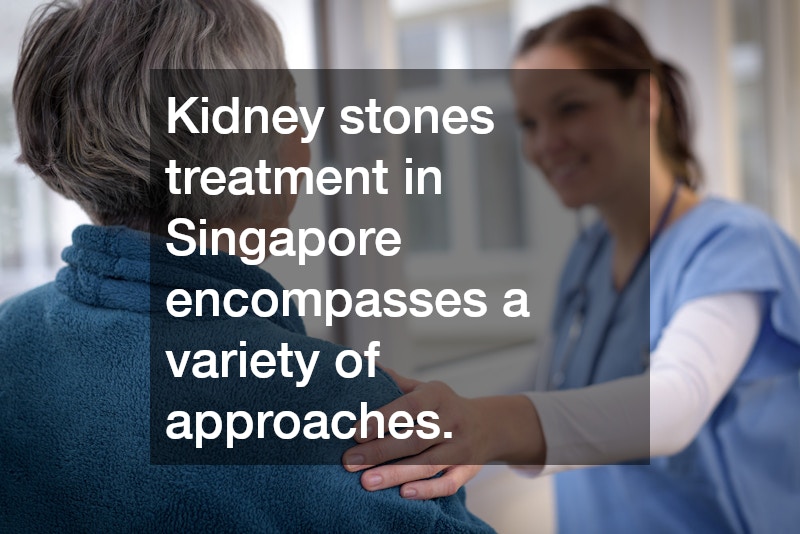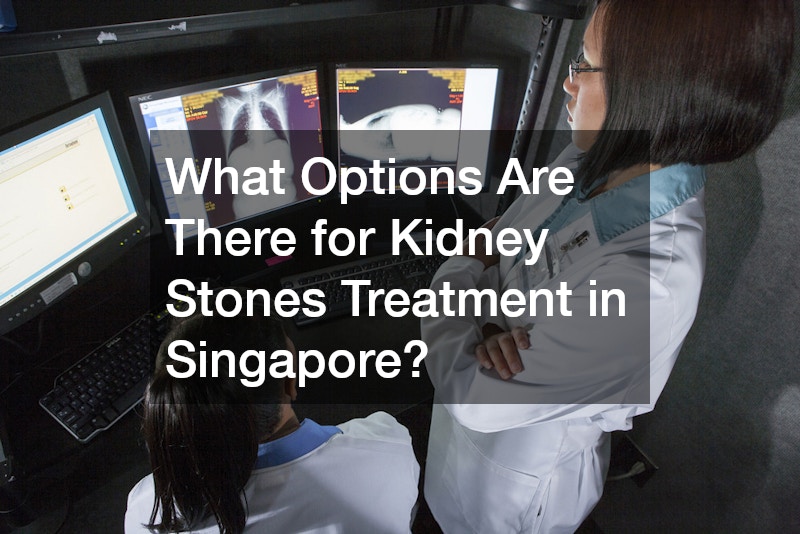
Kidney stones can be an excruciatingly painful condition, affecting a significant number of individuals worldwide. In Singapore, the prevalence of kidney stones is increasing, partly due to dietary habits and the hot climate which can lead to dehydration. Fortunately, there are numerous effective treatment options available in Singapore to address this condition, ranging from non-invasive procedures to surgical interventions.
Non-Invasive Treatments
For many patients, non-invasive options are the first line of defense against kidney stones. One of the most commonly recommended treatments is increased hydration.
By consuming more water, individuals can dilute their urine, reducing the risk of stone formation and sometimes even dissolving small stones.
Medications can also play a pivotal role in the management of kidney stones. Alpha-blockers, for instance, aid in relaxing the muscles in the ureter, facilitating the passage of stones. Citrate medications can also be effective, working to break down calcium-based stones and preventing new stones from forming.
Extracorporeal shock wave lithotripsy (ESWL) is a popular non-invasive procedure available in Singapore. This treatment uses shock waves to break kidney stones into smaller pieces that can be easily passed through the urinary tract. It is often recommended for stones that are too large to pass naturally but do not require surgical removal.
Minimally Invasive Treatments
When non-invasive methods are insufficient, minimally invasive treatments are considered. Ureteroscopy involves a small scope being passed into the urethra and bladder to reach the ureter, allowing doctors to directly remove the kidney stones. This procedure is typically performed under spinal or general anesthesia.
Another option is percutaneous nephrolithotomy (PCNL), which is used for larger stones. This procedure entails making a small incision in the back to remove stones directly from the kidney. PCNL is often chosen when ESWL is not viable due to the size or position of the stone.
Following minimally invasive procedures, patients can generally expect a relatively quick recovery. The advancements in surgical technology and techniques have significantly reduced the risks associated with these treatments. Doctors in Singapore are trained to provide comprehensive care plans post-surgery to ensure minimal discomfort and reduced risk of recurrent stone formation.
Surgical Treatments
In cases where stones are exceptionally large or have led to complications, surgical interventions might be necessary. Open surgery, although rare, is an option for particularly complex cases of kidney stones. This involves making a larger incision to directly remove the stones from the kidney or ureter.
Another surgical option is laparoscopy, which is less invasive than open surgery. Laparoscopy involves several small incisions through which surgical instruments are inserted, along with a camera to guide the procedure. This approach minimizes recovery time while effectively removing stones that are otherwise inaccessible.
Surgeons in Singapore are highly skilled and experienced in performing these procedures, ensuring high success rates. Comprehensive pre-surgical assessments are carried out to determine the best surgical option, tailored to the individual’s specific case. Post-operative care is also emphasized to reduce the risk of future kidney stone occurrences.
Preventive Measures
Prevention is always better than cure, and there are several strategies to prevent kidney stones. Staying well-hydrated is the cornerstone of prevention, as it ensures urine is dilute, which lessens the likelihood of stone formation. People are encouraged to drink plenty of water, especially in Singapore’s tropical climate.
Dietary adjustments can also play a crucial role in prevention. Limiting the intake of foods high in oxalates, sodium, and animal protein can reduce the risk of developing kidney stones. Incorporating more fruits and vegetables into one’s diet can provide essential nutrients and keep the urinary system in balance.
Regular check-ups and consultations with healthcare professionals can aid in early detection and prevention strategies. Personalized advice from doctors or dietitians can help tailor an individual’s lifestyle to minimize risk. Understanding one’s personal risk factors and adhering to medical recommendations remains vital in preventing kidney stones effectively.
Kidney stones treatment in Singapore encompasses a variety of approaches, ensuring that patients receive personalized care based on their specific needs. From non-invasive methods like hydration and medication to more involved surgeries like PCNL or laparoscopic interventions, numerous options exist to effectively manage and treat kidney stones. By combining advanced medical techniques with preventive measures, Singapore offers comprehensive kidney stones treatment to help patients alleviate pain and prevent recurrence.
.




